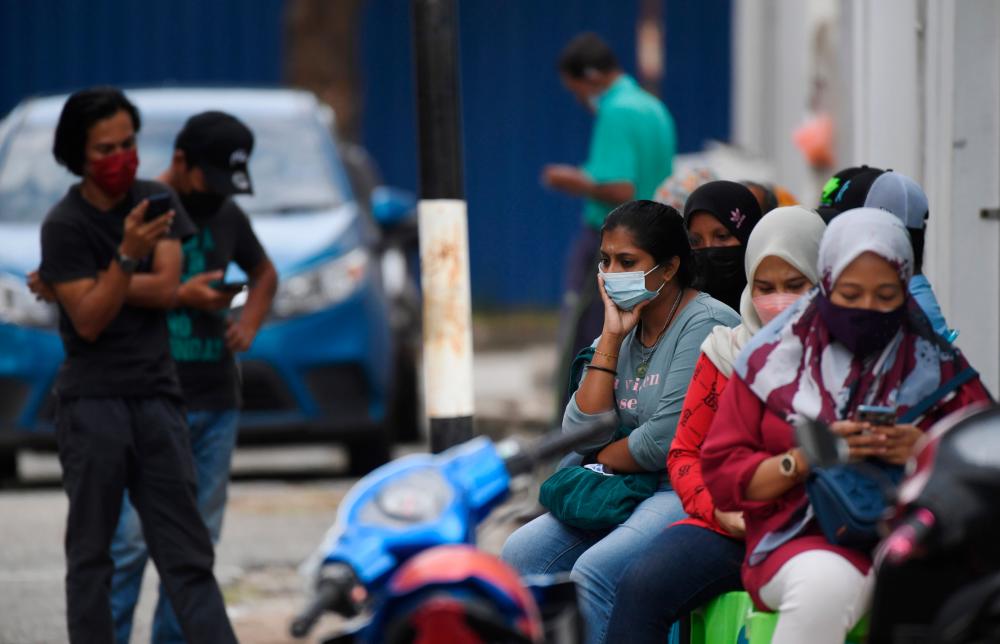PETALING JAYA: Every success that has been achieved in the years of effort to raise income and eradicate poverty has gone down the drain.
Many in the middle income group have sunk into the low income category, and absolute poverty has re-emerged in the 19 months since Covid-19 arrived in Malaysia.
To compound matters, prices of some essentials have risen, putting more pressure on the people.
Universiti Tun Abdul Razak economist Dr Barjoyai Bardai said that overall, average income has dropped by 10.7% since the pandemic began.
“The worst hit are those in the B40 and M40 groups, although some in the T20 have also suffered some losses,” he said, adding that discounting the T20, some of whom actually took home even more money during the pandemic, the overall drop in income has exceeded 50%.
Barjoyai said the median household income has dropped below RM2,000 a month, erasing whatever gains that have been previously made in efforts to raise median income above RM3,000.
He estimated that at least half of households in the lower income group now earn less than RM2,000 a month.
He was commenting on a statement by Prime Minister Datuk Seri Ismail Sabri Yaakob that about 580,000 households nationwide which were previously in the M40 group have fallen into the B40 category because of the economic impact of the pandemic, and that the absolute poverty rate had risen to 8.4% from 5.6% previously.
Barjoyai said this translated to 20% of all M40 households, citing data from the Household Income Estimates and Incidence of Poverty Report by the Statistics Department, that showed 580,000 M40 households which have dropped into the B40 category were earning RM4,850 to RM10,959 before the pandemic.
He said under such circumstances, Malaysians should be experiencing a deflation, but the situation changed early this year as oil prices rose.
“We are now seeing an inflation, a double impact for the people. As income falls, prices continue to rise, raising the cost of living,” he said.
“More and more people are now finding it difficult to make ends meet.”
Given that businesses have yet to recover, Barjoyai said employers will not be able to raise salaries yet.
“Therefore, incomes will remain low for some time.”
He said rather than taking the normal path to economic recovery, the country will need a quantum leap to get out of its current troubles.
“We should encourage entrepreneurship but we must not return to the way that we used to do business. We need innovation in technology that will improve the way of life and help us take the next leap forward,” he said, adding that without a paradigm shift, the economy would never recover.
Centre for Public Policy chairman at the Asian Strategy and Leadership Institute, Tan Sri Ramon Navaratnam, described the current situation as a “skewed result of the New Economic Policy (NEP)”.
“The policy has benefited only a few while failing those that it was meant to help in the first place,” he told theSun.
“In fact, many people are already having trouble putting three square meals on the table,” he added.
Ramon said those in the B40 group now urgently need employment, giving the government no choice but to lift restrictions on economic activities.
“We are already in an ‘emergency’ situation. The government may have to incur even more debt to help those who are at the end of the rope.”
He said the NEP should be transformed to ensure that it meets the desired objective of helping every Malaysian.
“Politics should no longer play a part in how we overhaul and develop our economy to face future challenges. Otherwise, we are doomed.”













